Introduction
AI in healthcare is not just a technological marvel; it’s a game-changer that’s transforming the medical world as we know it. Imagine a world where diseases are detected before symptoms appear, treatment plans are tailored specifically to your genetic makeup, and healthcare is accessible and efficient for everyone. This isn’t a scene from a science fiction movie; it’s the reality that Artificial Intelligence (AI) is bringing to healthcare. AI is revolutionizing how we diagnose, treat, and manage illnesses, making healthcare smarter and more effective.
By leveraging the power of AI, we can overcome some of the biggest challenges in medicine and pave the way for a healthier future. In this article, we explore the revolutionary role of AI in healthcare, uncovering how this cutting-edge technology is changing the landscape of medicine and improving patient outcomes like never before.
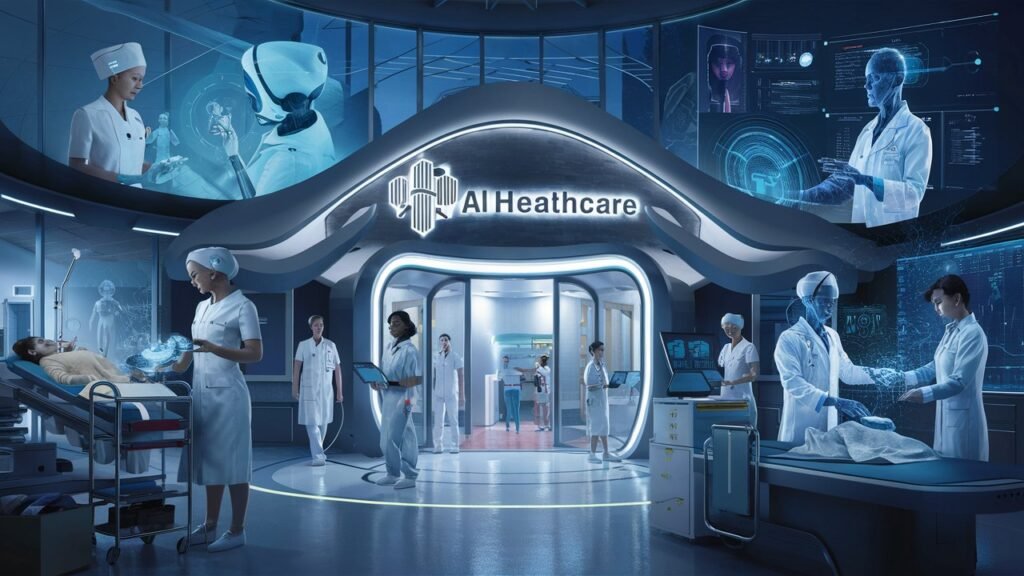
1. Early Rule-Based Systems
The journey of AI in healthcare began decades ago with simple rule-based systems designed to assist clinicians in decision-making processes. These early systems, although primitive compared to today’s standards, laid the groundwork for the sophisticated machine learning algorithms we see today. Key milestones include:
- MYCIN in the 1970s: Used rules to diagnose bacterial infections and recommend antibiotics. Groundbreaking at the time, these systems were limited by their reliance on predefined rules and lack of learning capabilities.
2. Emergence of Machine Learning
The advent of machine learning in the 1990s and 2000s introduced the ability for systems to learn from data. This significant leap forward allowed AI to improve its performance over time without explicit programming for every scenario.
3. Breakthroughs in Deep Learning
The 2010s witnessed the rise of deep learning, a subset of machine learning that uses neural networks with many layers. This technology enabled the analysis of vast and complex datasets, leading to breakthroughs in image and speech recognition. Notable developments like IBM’s Watson and Google’s DeepMind demonstrated AI’s potential far beyond simple rule-based tasks.
4. AI in Diagnostics and Imaging
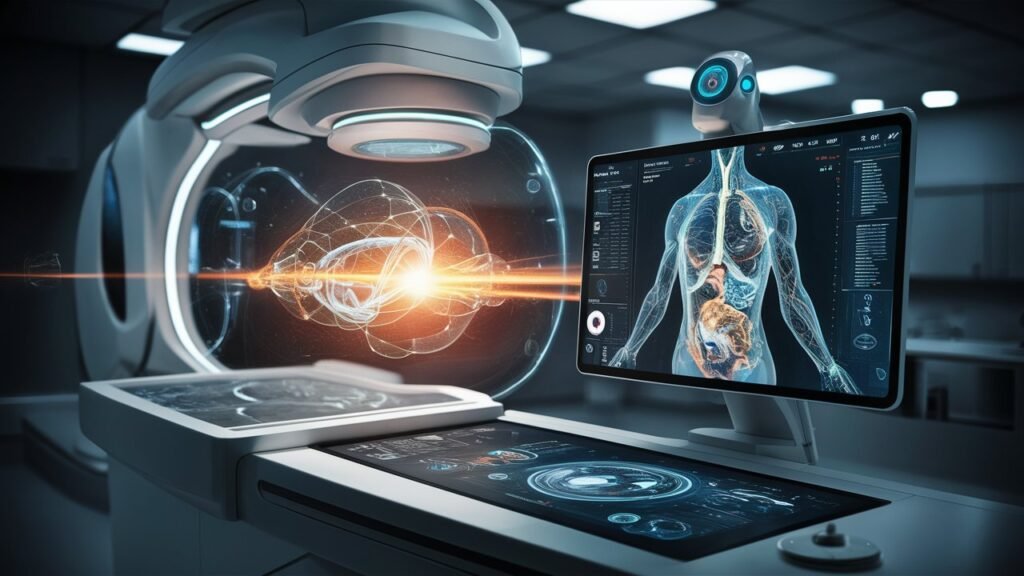
AI’s impact on diagnostics and medical imaging is one of its most transformative contributions to healthcare. The traditional process of diagnosing diseases through medical images can be time-consuming and subject to human error. AI in healthcare addresses these issues by analyzing images with unprecedented speed and accuracy.
- Breast Cancer Detection: AI models, such as Google’s LYNA (Lymph Node Assistant), have demonstrated the ability to detect breast cancer metastases in lymph nodes with over 90% accuracy. This surpasses the performance of human pathologists in some cases, providing a powerful tool for early cancer detection.
- Eye Disease Screening: DeepMind’s AI system for diagnosing eye diseases has been a game-changer. By analyzing retinal scans, the system can detect over 50 eye conditions, including diabetic retinopathy and age-related macular degeneration. This early detection is crucial for preventing blindness and other severe complications.
- Lung Cancer Screening: AI algorithms can analyze CT scans to identify early signs of lung cancer, often missed by human radiologists. Early detection significantly improves patient outcomes, as treatments are more effective in the early stages of cancer.
- Cardiovascular Disease: AI applications in cardiology include the analysis of echocardiograms to identify heart diseases and abnormalities. AI-driven tools can provide real-time assessments during procedures, aiding cardiologists in making informed decisions.
These advancements not only enhance diagnostic accuracy but also reduce the time required for analysis, enabling faster treatment decisions and improving patient outcomes. The ability to process and interpret vast amounts of imaging data quickly and accurately is revolutionizing how diseases are diagnosed and treated.
5. AI in Predictive Analytics and Personalized Medicine
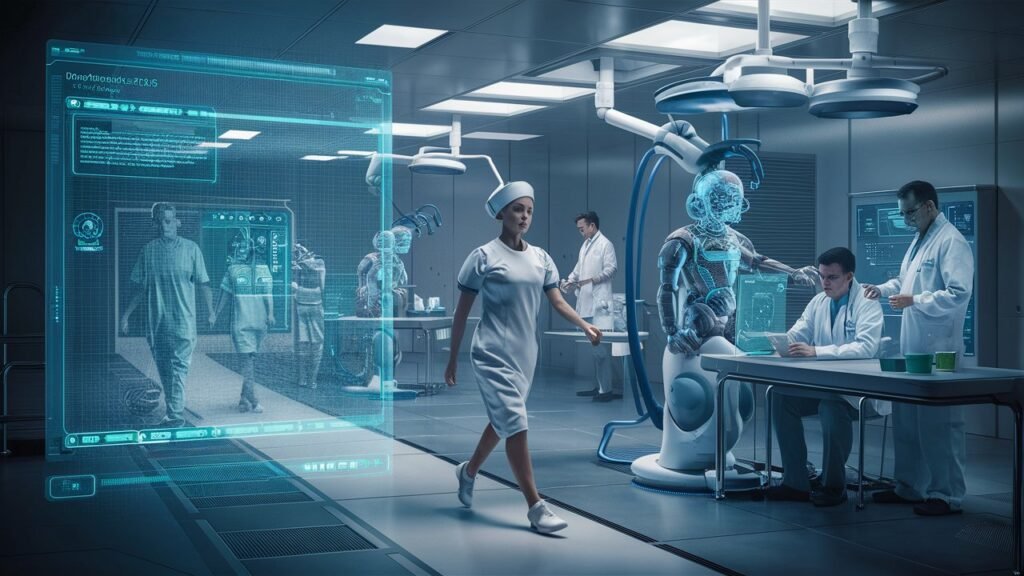
Predictive analytics powered by AI represents a paradigm shift in healthcare, moving from reactive to proactive care. By analyzing large datasets, AI in healthcare can foresee patient outcomes and potential health risks, enabling earlier interventions and more personalized treatments.
- Predictive Analytics: AI models excel in predicting the likelihood of diseases such as diabetes, heart disease, and cancer. For example, by analyzing electronic health records (EHRs), AI can identify patterns and risk factors that might be overlooked by human clinicians. This allows for early intervention, which can prevent diseases from developing or progressing.
- Personalized Treatment Plans: Traditional medicine often adopts a one-size-fits-all approach, which may not be effective for everyone. AI-driven tools can analyze genetic information, lifestyle data, and medical history to create customized treatment plans. This approach ensures that patients receive treatments tailored to their unique genetic makeup and health conditions, improving efficacy and reducing side effects.
- Drug Response Prediction: AI can predict how different patients will respond to specific medications based on their genetic profiles. This is particularly useful in oncology, where personalized cancer treatments can be developed to target specific genetic mutations in tumors.
- Chronic Disease Management: AI systems can continuously monitor patients with chronic diseases, such as diabetes and hypertension, and predict potential complications. By providing real-time data and alerts, these systems enable timely interventions and better disease management.
Personalized medicine driven by AI not only enhances the effectiveness of treatments but also empowers patients with more precise and tailored healthcare solutions. This shift towards individualized care has the potential to improve patient outcomes and overall quality of life significantly.
6. AI in Patient Care and Management

AI’s role in patient care and management is multifaceted, encompassing everything from virtual health assistants to robotic surgery. These applications enhance patient experiences, improve healthcare delivery, and streamline administrative processes.
- Virtual Health Assistants: AI chatbots and virtual assistants are revolutionizing patient interaction by providing round-the-clock support. These systems can answer patient queries, schedule appointments, provide medication reminders, and even offer preliminary medical advice based on symptoms. This not only improves patient satisfaction but also reduces the workload on healthcare staff.
- Remote Monitoring: AI-driven wearable devices, such as smartwatches and fitness trackers, monitor patients’ vital signs in real-time. These devices can detect anomalies and alert healthcare providers to potential issues before they become serious. Remote monitoring is particularly beneficial for patients with chronic conditions, enabling continuous care and reducing hospital visits.
- Robotic Surgery: AI-enabled surgical robots assist surgeons during procedures, enhancing precision and control. These robots can perform delicate tasks that are challenging for human hands, such as suturing tiny blood vessels. Robotic surgery reduces recovery times, minimizes surgical risks, and improves patient outcomes.
- Telemedicine: The COVID-19 pandemic accelerated the adoption of telemedicine, and AI in healthcare is enhancing these platforms. AI-powered tools can assist in virtual consultations by analyzing patient data, suggesting diagnoses, and recommending treatments. This improves the efficiency and effectiveness of telehealth services.
- Hospital Management: AI applications in hospital management include optimizing staffing, managing patient flow, and predicting resource needs. AI can analyze data to ensure that hospitals are adequately staffed and that resources are allocated efficiently, improving overall healthcare delivery.
These advancements in patient care and management are transforming the healthcare experience, making it more convenient, efficient, and effective. By leveraging AI in healthcare, providers can offer higher-quality care while also reducing costs and improving operational efficiency.
7. Ethical Considerations and Challenges
Despite its transformative potential, the integration of AI into healthcare raises several ethical and practical challenges that must be addressed to ensure its successful and equitable implementation.
- Data Privacy: The use of AI in healthcare requires access to vast amounts of patient data, raising concerns about privacy and security. Ensuring the confidentiality of patient information is paramount. AI systems must comply with regulations such as the Health Insurance Portability and Accountability Act (HIPAA) in the U.S. and the General Data Protection Regulation (GDPR) in Europe. Robust cybersecurity measures are essential to protect sensitive data from breaches and misuse.
- Bias and Fairness: AI models can inadvertently perpetuate existing biases in healthcare if trained on unrepresentative or biased datasets. For example, if a model is trained predominantly on data from a specific demographic, it may not perform well for other groups. Ensuring diversity and representativeness in training datasets is crucial to avoid bias and ensure fairness in AI-driven healthcare.
- Accountability: Determining responsibility when AI systems make errors is complex. If an AI-driven diagnostic tool provides an incorrect diagnosis, it can have serious consequences for patient care. Clear guidelines and regulations are needed to address accountability issues, ensuring that there is a framework for evaluating and mitigating errors.
- Transparency: The “black box” nature of many AI algorithms makes it challenging to understand how they arrive at their decisions. This lack of transparency can erode trust among healthcare providers and patients. Developing explainable AI models that provide insights into their decision-making processes is essential for building trust and ensuring ethical use.
- Access and Equity: The benefits of AI in healthcare must be accessible to all, regardless of socioeconomic status or geographic location. Efforts must be made to bridge the digital divide and ensure that underserved populations have access to AI-driven healthcare innovations.
Addressing these ethical considerations and challenges is essential to harnessing the full potential of AI in healthcare while ensuring that it is used responsibly and equitably.
The Future of AI in Healthcare

The future of AI in healthcare is brimming with promise, driven by ongoing research and development. Emerging trends indicate that AI will continue to play an increasingly integral role in various aspects of healthcare.
- AI in Genomics: AI’s ability to analyze genetic data is set to revolutionize genomics. By identifying patterns and correlations in genetic information, AI can help understand the genetic basis of diseases, leading to breakthroughs in gene therapies and personalized treatments. The integration of AI in healthcare genomics could pave the way for precision medicine, where treatments are tailored to individual genetic profiles.
- AI and Drug Discovery: The drug discovery process is notoriously time-consuming and expensive. AI algorithms are speeding up this process by predicting how different compounds will interact with biological targets. This accelerates the identification of potential drug candidates, reducing the time and cost involved in bringing new drugs to market. AI-driven drug discovery holds the potential to address urgent medical needs and develop treatments for previously untreatable conditions.
- AI-Enhanced Telemedicine: The COVID-19 pandemic has highlighted the importance of telemedicine, and AI in healthcare is set to further enhance these platforms. AI tools can assist in virtual consultations by analyzing patient data, suggesting diagnoses, and recommending treatments. The integration of AI into telemedicine platforms will improve patient-physician interactions, diagnostic accuracy, and overall care delivery.
- AI in Mental Health: AI applications in mental health include chatbots and virtual therapists that provide support and counseling. These tools can analyze speech and text for signs of mental health issues, offering early intervention and continuous support. AI-driven mental health tools can make mental healthcare more accessible and reduce the stigma associated with seeking help.
- AI for Elderly Care: AI-powered robots and smart home systems can assist elderly individuals in their daily activities, monitor their health, and provide companionship. These systems enhance the quality of life for elderly individuals and enable them to live independently for longer.
- AI and Robotics: The synergy between AI and robotics is opening new frontiers in healthcare. From robotic exoskeletons that assist in rehabilitation to autonomous robots that perform complex surgeries, the possibilities are endless. AI-driven robotics will enhance precision, reduce recovery times, and improve patient outcomes in various medical fields.
The ongoing advancements in AI technology and its integration into healthcare systems promise a future where medical care is more accurate, personalized, and efficient. As AI in healthcare continues to evolve, its role will expand, bringing about innovative solutions to some of the most pressing medical challenges.
Conclusion
Artificial Intelligence is undeniably reshaping the landscape of healthcare, ushering in a new era of precision, efficiency, and personalized care. Its applications in diagnostics, personalized medicine, patient care, and beyond are already yielding significant benefits. However, to fully realize the potential of AI in healthcare, it is crucial to address ethical challenges, ensure equitable access, and maintain transparency and accountability. Imagine a future where AI seamlessly integrates into every aspect of healthcare, from predicting diseases before they manifest to offering personalized treatment plans tailored to each patient’s unique needs. This vision is not far from becoming a reality.
By embracing AI’s transformative power, we can look forward to a future where healthcare is not only more efficient and effective but also more compassionate, ultimately improving the quality of life for patients worldwide. The journey has just begun, and the possibilities are limitless.



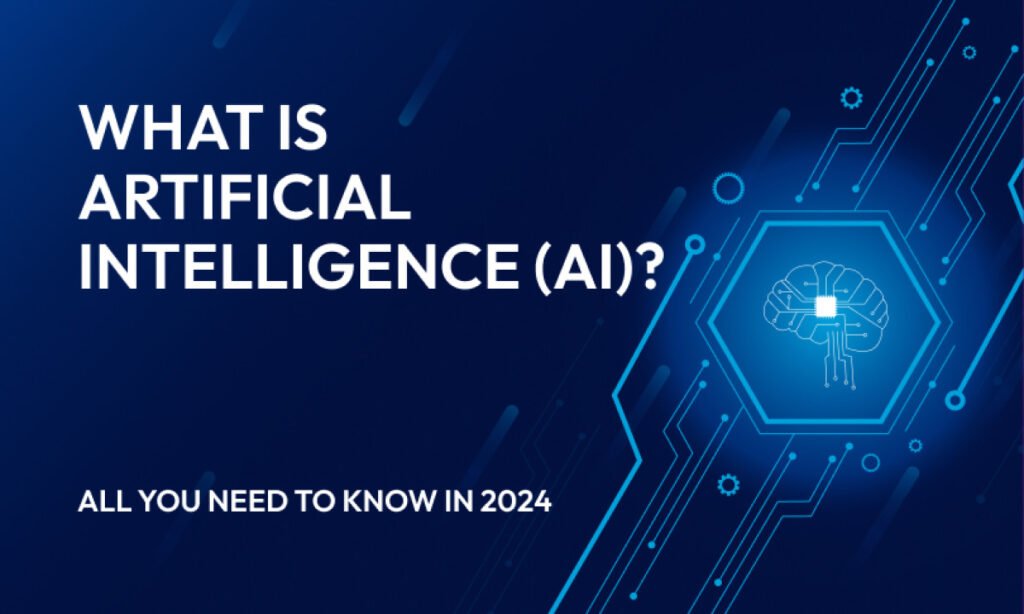

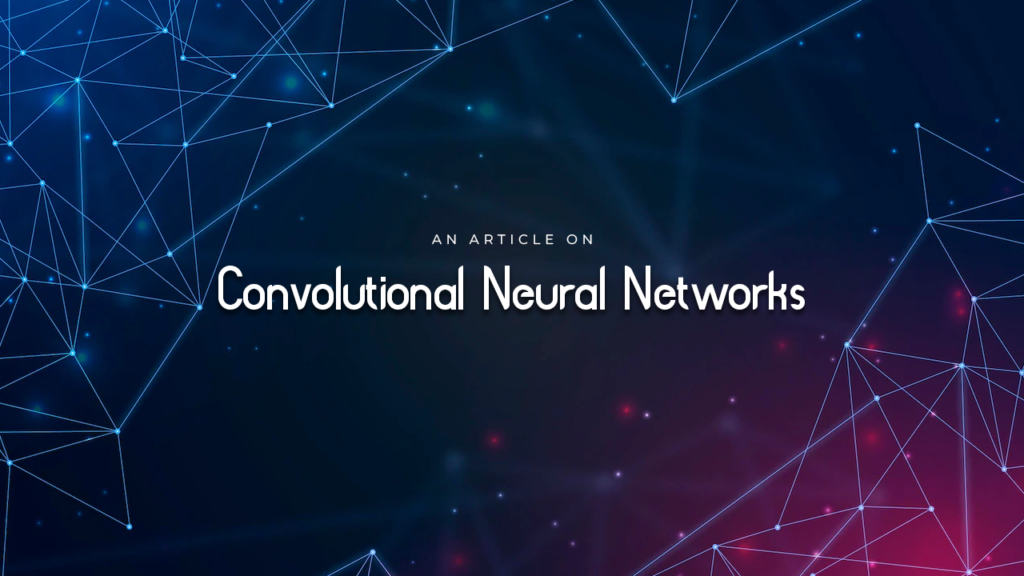

Real Estate I very delighted to find this internet site on bing, just what I was searching for as well saved to fav
Yay google is my world beater helped me to find this great website ! .
My spouse and i have been absolutely thrilled when Peter managed to finish off his reports using the precious recommendations he got out of the web pages. It’s not at all simplistic just to be giving out guidance which usually many people might have been selling. We take into account we have the website owner to thank for this. The type of illustrations you made, the simple blog menu, the friendships your site make it easier to create – it’s got all remarkable, and it is leading our son in addition to our family know that that issue is awesome, and that is very indispensable. Thanks for the whole lot!
Its fantastic as your other blog posts : D, thanks for posting. “Age is a function of mind over matter if you don’t mind, it doesn’t matter.” by Leroy Robert Satchel Paige.
I conceive you have observed some very interesting points, appreciate it for the post.
I don’t ordinarily comment but I gotta say thanks for the post on this amazing one : D.
I’ve been browsing on-line greater than 3 hours nowadays, but I by no means discovered any attention-grabbing article like yours. It¦s beautiful worth sufficient for me. In my opinion, if all site owners and bloggers made excellent content as you did, the web shall be a lot more useful than ever before.
Good day! I know this is kinda off topic but I was wondering if you knew where I could find a captcha plugin for my comment form? I’m using the same blog platform as yours and I’m having trouble finding one? Thanks a lot!
I rattling delighted to find this site on bing, just what I was looking for : D also saved to favorites.
I like what you guys are up also. Such clever work and reporting! Carry on the superb works guys I have incorporated you guys to my blogroll. I think it will improve the value of my website :).
I intended to compose you the bit of remark so as to thank you very much yet again just for the wonderful secrets you’ve shown here. It is shockingly generous with people like you giving freely exactly what a few people would’ve sold for an e book to make some money for their own end, notably now that you could possibly have done it if you ever desired. These inspiring ideas in addition worked like the good way to fully grasp the rest have the identical zeal just like mine to find out many more when it comes to this condition. I am sure there are many more enjoyable instances up front for people who look over your site.
I am glad that I observed this website, precisely the right info that I was looking for! .
Good web site! I truly love how it is simple on my eyes and the data are well written. I am wondering how I might be notified whenever a new post has been made. I have subscribed to your RSS feed which must do the trick! Have a nice day!
It¦s actually a nice and useful piece of info. I am satisfied that you shared this useful information with us. Please keep us up to date like this. Thank you for sharing.